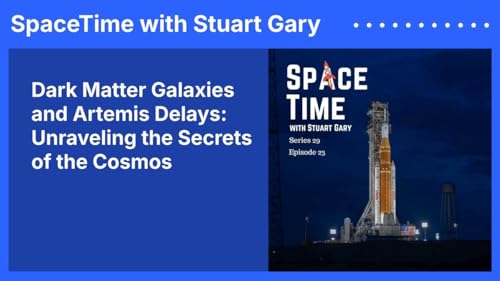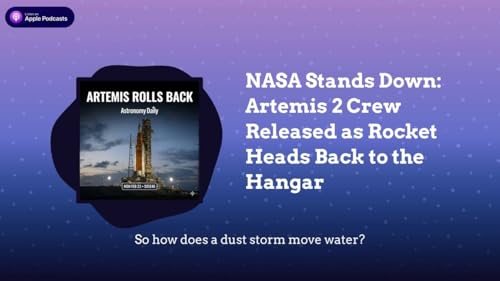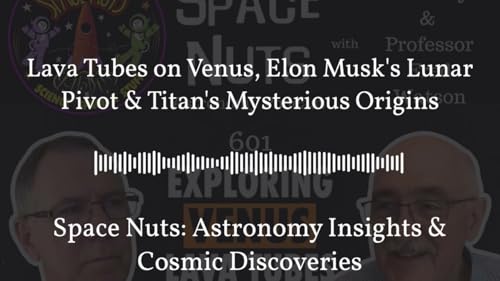Sponsor Link:
This episode of Space Nuts is brought to you by NordVPN . Protect your online privacy with the one we trust - NordVPN . To get our special deal, visit nordvpn.com/spacenuts (https://nordvpn.com/spacenuts) .
And Incogni - i ncogni.com/spacenuts (https://incogni.com/spacenuts)
Exploring Dark Matter, Telescope Innovations, and Olympus Mons
In this engaging Q&A edition of Space Nuts , hosts Andrew Dunkley and Professor Fred Watson tackle a range of fascinating listener questions that dive deep into the mysteries of our universe. From the elusive nature of dark matter to the future of space telescopes, this episode promises to enlighten and entertain.
Episode Highlights:
- The Mystery of Dark Matter: Listener Bob from Chicago asks how astronomers have determined that approximately 80% of the universe is made up of dark matter. Fred explains the historical context and the groundbreaking techniques that have led to this astonishing conclusion.
- Next-Gen Telescopes: Ben also inquires about the next large telescope to be launched. Fred shares his excitement for the Extremely Large Telescope (ELT) in Chile, which promises to revolutionize our understanding of the cosmos with its advanced capabilities.
- Understanding Telescopes: Ash from Australia seeks clarity on the different types of telescopes and the wavelengths they detect. Fred elaborates on the intricate designs of optical, infrared, and radio telescopes, explaining how their unique technologies allow them to observe various forms of light.
- The Graviton Enigma: Russ from the UK poses a thought-provoking question about the graviton and its relation to Einstein's theory of gravity. Fred discusses the complexities of gravity as a force and the ongoing quest to understand its fundamental particles.
- Olympus Mons and Space Elevators: Robert from Iceland wonders if Olympus Mons could serve as a staging point for a space elevator. The hosts explore the challenges and feasibility of this intriguing concept, revealing the importance of location in such ambitious projects.
For more Space Nuts, including our continuously updating newsfeed and to listen to all our episodes, visit our website. (https://www.spacenutspodcast.com/) Follow us on social media at SpaceNutsPod on Facebook, Instagram, and more. We love engaging with our community, so be sure to drop us a message or comment on your favorite platform.
If you’d like to help support Space Nuts and join our growing family of insiders for commercial-free episodes and more, visit spacenutspodcast.com/about (https://www.spacenutspodcast.com/about) .
Stay curious, keep looking up, and join us next time for more stellar insights and cosmic wonders. Until then, clear skies and happy stargazing.
Become a supporter of this podcast: https://www.spreaker.com/podcast/space-nuts-astronomy-insights-cosmic-discoveries--2631155/support (https://www.spreaker.com/podcast/space-nuts-astronomy-insights-cosmic-discoveries--2631155/support?utm_source=rss&utm_medium=rss&utm_campaign=rss) .
Episode link: https://play.headliner.app/episode/31808838?utm_source=youtube
 Feb 24 202621 m
Feb 24 202621 m 27 m
27 m 12 m
12 m Feb 23 202635 m
Feb 23 202635 m 16 m
16 m 21 m
21 m Feb 20 202634 m
Feb 20 202634 m 23 m
23 m
